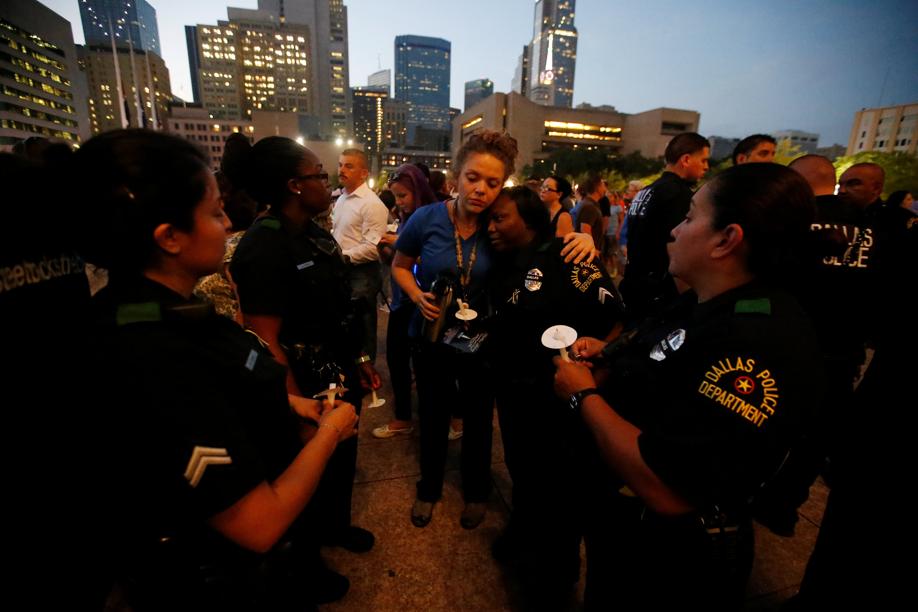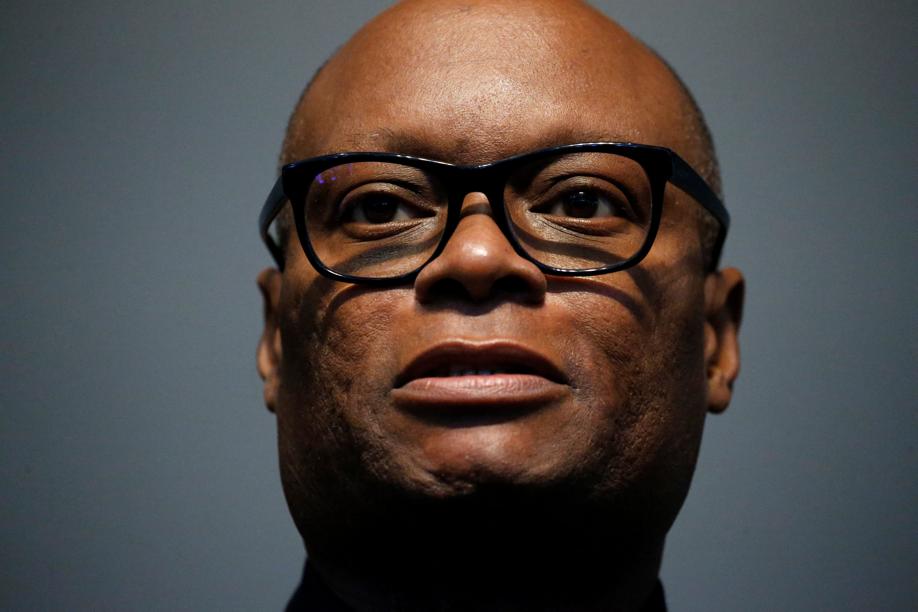

DALLAS — Military service changed the Dallas gunman from an extrovert into a hermit, his parents said in an interview excerpt published Monday.
Micah Johnson’s mother, Delphine, told TheBlaze website that her son wanted to be a police officer as a child.
His six years in the Army Reserve, including a tour in Afghanistan, were ‘‘not what Micah thought it would be ... what he thought the military represented, it just didn’t live up to his expectations.’’
A military lawyer said Johnson was accused of sexually harassing a female soldier while deployed.
His father, James, said haltingly and through tears: ‘‘I don’t know what to say to anybody to make anything better. I didn’t see it coming.’’
The black 25-year-old fatally shot five officers in Thursday’s attack while hundreds of people were gathered in downtown Dallas to protest recent fatal police shootings. Nine other officers and two civilians were wounded.
Police Chief David Brown clarified Monday where Johnson was killed with a bomb delivered by a remote-controlled robot, saying that it happened on the second floor of El Centro College, not a parking garage as authorities previously described. Brown did not provide more details, including the locations of the negotiations that came before the bomb.
The police chief again defended the decision to use the robot, saying he had ‘‘already killed us in a grave way, and officers were in surgery that didn’t make it.
‘‘This wasn’t an ethical dilemma for me,’’ he said. ‘‘I’d do it again ... to save our officers’ lives.’’
Brown said officials used a Remotec Andros Mark V-A1 robot, manufactured by Northrop Grumman, to deliver one pound of C-4 explosive and a detonation cord. The robot survived the explosion. The damage to the building has not been assessed.
More than 1,000 people gathered downtown Monday to attend a candlelight vigil for the five slain officers.
A memorial service is planned Tuesday for the five officers killed, with President Obama, Vice President Joe Biden, and former president George W. Bush and his wife, Laura, expected to attend.
Governor Greg Abbott said Monday he will not be able to make it because he’ll be undergoing skin grafts on his feet after suffering second- and third-degree burns. His wife, Cecilia Abbott, will take his place.
Authorities have said Johnson had plans for a larger assault, possessed enough explosive material to inflict far greater harm, and kept a journal of combat tactics.
Eleven officers fired at Johnson and two used an explosive device, Brown said, adding that the investigation will involve more than 170 hours of body camera footage and ‘‘countless hours’’ of video from dashboards.
‘‘Bravery is not a strong enough word to describe what they did that day,’’ Brown said of officers’ response to Thursday’s events.
Surgeons at Parkland Memorial Hospital spoke Monday afternoon about treating some of the victims.
Dr. Brian H. Williams, who is black, said: ‘‘It weighs on my mind constantly (that he was unable to save the officers. ... It has to stop. Black men dying and being forgotten. People retaliating against the people sworn to protect us.’’
Dr. Alex Eastman, the director of the hospital’s trauma center who also is a deputy medical director with the city Police Department, said the shootings ‘‘rocked some guys to their core that I thought were unshakable.’’
Brown provided details of authorities’ negotiations with Johnson on Sunday on CNN’s ‘‘State of the Union,’’ saying Johnson ‘‘obviously had some delusion’’ as evidenced by rambling journal entries and writing ‘‘RB’’ and other markings in blood on walls near the shooting site — the meanings of which were unclear and being looked at by investigators.
Brown also said that Johnson, who insisted on speaking with a black negotiator, laughed at authorities, sang, and at one point asked how many officers he had shot.
Federal agents are trying to trace the origin of the weapons used by Johnson, including a military-style semiautomatic rifle. About 30 agents are involved in identifying bullet casings, said William Temple, the Dallas agent in charge for the Bureau of Alcohol, Tobacco, Firearms and Explosives.
Johnson’s time in the Army was marked by a sexual harassment accusation in May 2014 while in Afghanistan. The Army sent him stateside, recommending an ‘‘other than honorable discharge’’ — which is ‘‘highly unusual’’ because counseling is usually ordered before more drastic steps are taken, said Bradford Glendening, the military lawyer who represented him.
‘‘In his case, it was apparently so egregious, it was not just the act itself,’’ Glendening said.
According to a court filing, the victim said she wanted Johnson to ‘‘receive mental help’’ and sought a protective order to keep him away from her and her family.
?Harvard study details police biases. A5



